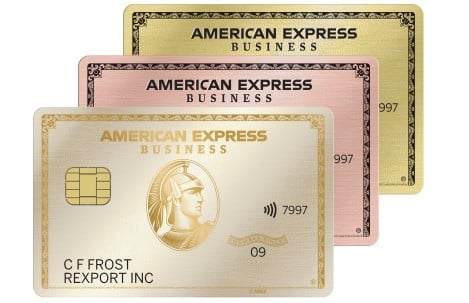Small Business Financing Options
The top sources of small-business financing include loans from banks and online lenders, as well as small-business grants.
Many, or all, of the products featured on this page are from our advertising partners who compensate us when you take certain actions on our website or click to take an action on their website. However, this does not influence our evaluations. Our opinions are our own. Here is a list of our partners and here's how we make money.
Concerned about tariffs?
Many small-business owners are under increased economic stress and uncertainty following the latest tariff announcements. NerdWallet is here to help you find answers for whatever you're looking for. Here are some resources to help you get started:
Need emergency funding? Consider a business line of credit.
Looking for fast access to working capital? Discover the best working capital loans.
Want tips on how to mitigate the impact of tariffs? Read our guide.
Companies can get business financing by taking on debt, like small-business loans from traditional banks and online lenders, or by offering investors equity in exchange for capital. Business grants are another debt-free financing option with targeted grants for women, minorities and veteran-owned businesses, along with other groups and industries.
Why you need capital, how fast you need it and your business’s qualifications will determine the best financing option for your business.
How much do you need?
We’ll start with a brief questionnaire to better understand the unique needs of your business.
Once we uncover your personalized matches, our team will consult you on the process moving forward.
Financing options for small businesses
Bank and credit union loans
Business loans from banks and credit unions typically have low interest rates and competitive terms but you typically need strong personal credit, established business revenue and at least two years in operation to access bank financing.
Credit unions may have more flexible lending criteria than banks and have increased their small-business lending in recent years. In fact, small business lending by credit unions increased by more than 50% from 2017 to 2021, according to the most recent Federal Reserve data.
You need a member to qualify for financing from a credit union, but that can be relatively easy to do. And the co-op nature of credit unions often ties them to the community, so you may also reap the benefits of more personal relationships and name recognition.
Types of bank loans for small businesses
SBA loans
The U.S. Small Business Administration offers multiple types of SBA loans available, including SBA 7(a) loans, SBA 504 loans and SBA microloans. The most popular of the SBA loan programs, 7(a) loans can be used for a wide variety of purposes and are available in amounts up to $5 million. These loans are federally guaranteed, making it less risky for banks, and typically offer lower rates than traditional bank loans.
While SBA loans can be easier to access compared to bank financing, you still need a good credit score (FICO 690 and up), strong annual revenue and at least two years in business to qualify. The application process can be long and tedious, too, but a good SBA lender can help guide you through the process.
Small-business grants
Small-business grants offer debt-free way to finance and grow your business. Typically offered through nonprofits, government agencies and corporations, some grants focus on specific types of business owners or particular industries. Small-business grants can be a great funding option for startups, as well as for businesses that can’t qualify for traditional debt financing. The downside to free capital is that everybody wants it. It will take a lot of work to find and apply for grants, but time spent searching for free money opportunities could pay off in the long run.
Online business loans
Online business loans have increased in popularity, especially among business owners who are facing credit challenges. In 2023, 43% of medium- or high-risk credit applicants applied to online lenders and 19% applied to nonbank financial companies, according to an annual credit survey from the Federal Reserve released in March 2024.
Online lenders also offer fast cash, with several of them able to approve and fund applications within 24 hours. These lenders offer a variety of small-business financing options, including term loans, business lines of credit and invoice financing. The cost of borrowing, however, is generally higher; annual percentage rates can range anywhere from 14% to 99%.
Equity financing
Equity financing is any form of capital that you receive in exchange for equity, or ownership in your business. Crowdfunding, venture capital, angel investors and sometimes friends and family are sources of equity financing. Although the popularity of these services has increased in recent years, there are caveats. For one, your product or company has to be intriguing enough to catch the eye of multiple investors. In the case of equity crowdfunding, where investors gain a stake in the company, there are strict securities laws and rules to follow for investors and entrepreneurs alike. Equity financing can be a worthwhile option for businesses just starting out, but it’s not a great solution for long-term financing.
What type of small business financing should you use?
How you should finance your business depends on what you want to accomplish with that funding, as well as what you can qualify for. You may have a tough time getting a business loan before you’ve been in operation for at least a year, for instance.
Funding type | Who it's best for | What you'll typically need to qualify |
|---|---|---|
Business loans | Established businesses. | At least one year in business and good credit. You may have to provide collateral or sign a personal guarantee. |
Business credit cards | Businesses seeking to cover small gaps in cash flow. | Fair to good credit. |
Business lines of credit | Established businesses seeking to cover gaps in cash flow. | At least 6 months in business and fair to good credit. |
Self-funding | Business owners who are personally financially secure. | No qualification process. |
Friends and family | Business owners who have a circle of peers and family members who have enough resources to make an investment. | You should be prepared to show investors your business plan. |
Crowdfunding | Businesses with a large public profile. | Significant popularity or public support. |
Equity investment | Startups or established businesses planning to expand. | A relationship with venture capital funds or other investment funds. |
Rosalie Murphy contributed to this article.










